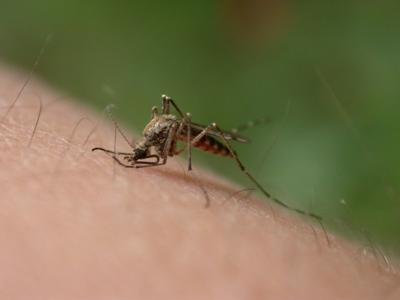The Louisiana Department of Health has confirmed West Nile virus infections in five Louisiana parishes, including East Baton Rouge and Livingston parishes.
The six cases in Louisiana so far this year is one fewer than this time last summer, according to the health department. Orleans Parish authorities found the virus in mosquitoes in June, though Wednesday's announcement indicates the virus has made the jump to humans.
The state divides West Nile infections into three categories: neuroinvasive disease, fever and infections that show no symptoms.
Neuroinvasive disease is the most serious and can lead to paralysis, brain damage and death. Human cases have been reported in Livingston, St. Tammany and DeSoto parishes.
Health department spokesman Sean Ellis said the state can’t comment on how those patients are doing but noted that 90 percent of people who contract the neuroinvasive disease recover.
Less serious is West Nile fever, which induces flu-like symptoms. Such cases have been reported in East Baton Rouge and Ouachita parishes.
An additional case was discovered in East Baton Rouge when the infected person donated blood. That person did not have any symptoms, as happens to most people who contract the West Nile virus, health department officials said.
Voters in Livingston Parish, where one person contracted neuroinvasive disease this year, have twice refused to fund parishwide mosquito control. Individual municipalities spray but do not monitor their own insect populations, state health department entomologist Kyle Moppert said.
“(Not spraying is) just going to increase the chances of these things happening,” he said.
Baton Rouge’s Mosquito Abatement and Rodent Control office is moving into a new 64,000-square-foot facility near the airport on Aug. 1. The new site will contain more space for personnel as well as an aircraft hangar to maintain the planes used to aerially spray the parish.
St. Tammany Parish officials swiftly issued a statement Wednesday urging residents to pitch in and help their mosquito abatement office reduce the mosquito population by draining standing water where the insects lay their eggs.
In addition to West Nile, the state lab at LSU’s School of Veterinary Medicine tests captured mosquitos for two types of encephalitis — a swelling of the brain — and can test for dengue fever, Zika and chikungunya if needed, Moppert said.
West Nile virus has been detected in mosquitoes collected from Orleans Parish, the New Orleans Mosquito, Termite and Rodent Control Board said…


